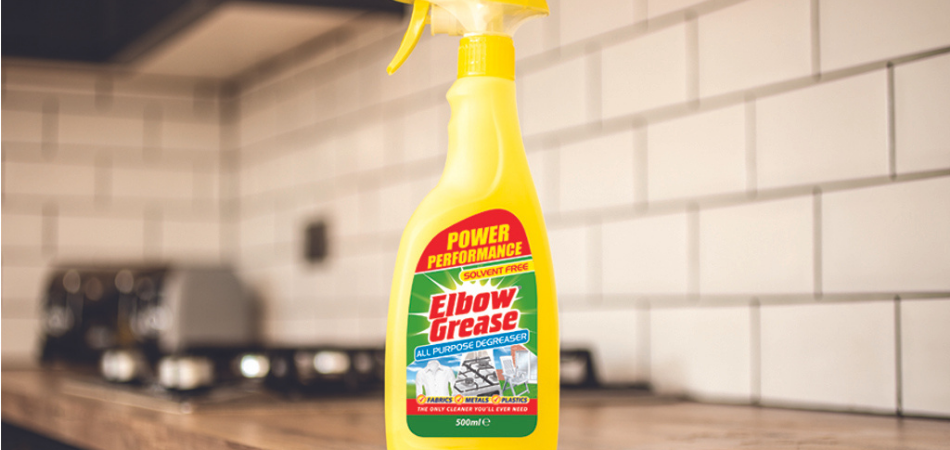Along with being unsightly, rust is a corrosive element that can cause serious damage to the look and overall integrity of your home. You must remove rust from any object you have in your home. Some suggest the use of elbow grease but does elbow grease remove rust?
Yes, Elbow Grease is a great rust remover to remove rust from iron and steel. You can also use it safely on cast iron or steel pans. It will only work on mild rust as it does not have the power to remove old rust.
Elbow Grease is a patented, specially formulated heavy-duty hand cleaner for removing grease, tar, oil, and similar soils from the skin. It does not contain petroleum solvents and will not harm the skin. On tough jobs like rust stains, allow Elbow Grease to remain on the stain for 5 to 10 minutes before washing off with water.
In addition to answering the question, ” does elbow grease remove rust” this article will give you tips on removing rust with elbow grease and list some precautions to take when removing rust with elbow grease.
Contents
Rust as an Electrochemical Reaction
Iron oxide, or rust, is a kind of corrosion that happens when iron or an alloy, such as steel, reacts with oxygen when water or high air moisture is present.
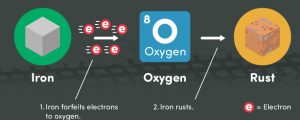
This process occurs so frequently in iron that finding a piece of metal without an oxide on it is nearly impossible. Rusting is generally slow and gradual, but water accelerates it, especially if the water has a high concentration of electrolytes that aid electron movement.
It’s a molecular-level electrochemical reaction in which electrons move from iron molecules to oxygen molecules in the surrounding environment, changing the iron’s constitution and causing it to rust. When salt is present, rust spreads more quickly.
Now that you’ve known what rust is and how it occur, let’s dive into how you can use this powerful cleaning agent to remove rust stains.
What Does Elbow Grease Contain?
Elbow grease as a cleaning agent is made with the following:
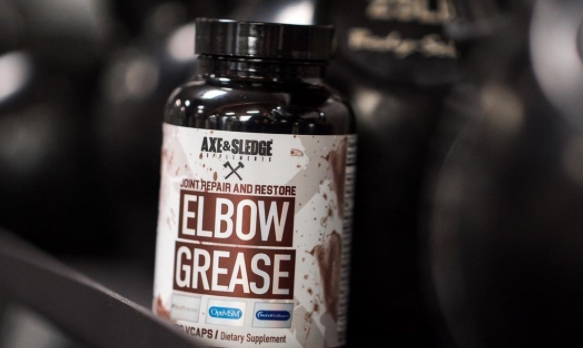
Cationic surfactants, perfume, non-ionic surfactants (less than 5%), limonene, and phosphates.
How to Use Elbow Grease to Remove Rust?
Seeing rust or rust stains on metal in your house does not mean that the item is damaged and should be discarded. If you bring out a little time, with the help of elbow grease, you can revive that piece of metal by removing rust stains from it, thereby making it look as good as new, and having it last for more time for you.
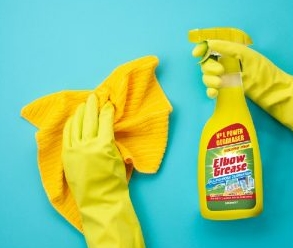
Elbow grease can be used on fabrics, metals, and plastics, and its application differs from surface to surface, but most applications use the same simple steps.
To apply elbow grease on hard surfaces to remove rust stains, follow these simple steps:
- Spray a small quantity of the agent onto a piece of fabric or sponge. You can as well spray directly on the surface you want to clean if you wish.
- To obtain the best result, allow it to act on the material for about two to five minutes.
- If necessary, scrub that part using a brush with hard bristles, sponge, or cloth.
- Wipe the area thoroughly with clean water.
- Dry the surface with a fabric.
To apply elbow grease on a piece of fabric to remove rust stains, follow these simple steps:
- Spray some quantity of elbow grease on the stained fabric.
- Allow it to act on the stain for about two to five minutes.
- Wash the fabric as normal.
- Rinse thoroughly using clean water.
- Then dry.
Are There Materials Elbow Grease Are Unsuitable for?
Although elbow grease is a go-to agent for both outdoor and indoor general cleaning, there are still some materials where you should not apply it.
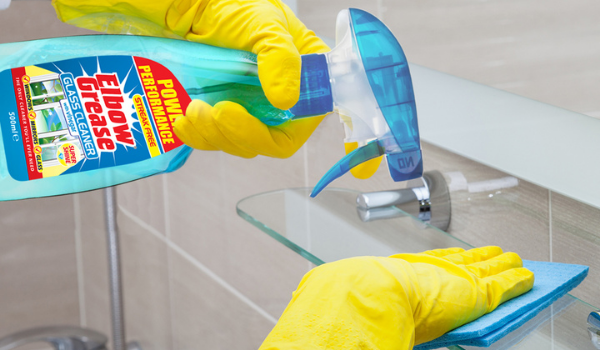
Some of these materials are:
- Plastic glass
- Visors
- Varnished surfaces
- Wood
- Perspex
- Painted surfaces
Also, note that elbow grease can stain some surfaces like the kitchen countertops, so always do some testing on a small area of the material when you want to use it on a new surface.
Precautions to Take when Using Elbow Grease
Like other cleaning agents, elbow grease is a chemical that requires some precautions to be taken when making use of it.
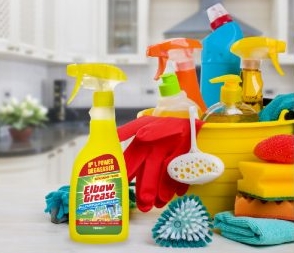
Some of these precautions are:
- Wear protective gloves to avoid contact with your skin.
- Do not inhale the smell of the product – only use it outdoors or in a well-ventilated environment.
- Wear an eye shield to avoid eye damage in case of contact.
- Do not mix it with other cleaning agents, and ensure that you do testing on a small portion if you’re not sure of how the agent will react on a particular surface.
- Remember that the agent is not meant to be used on all surfaces, but will surely remove stains on any surface it can work on.
Can Elbow Grease Remove Oil and Grease?
Elbow grease is a cleaning product mainly meant for removing oil and grease from surfaces, porous materials, fabrics, machinery, and engines.
Also, this elbow grease can help in the removal of only rust stains that have not eaten deep into a material where it’s found, i.e. it doesn’t remove deep iron oxide pits, but can clean off mild rust stains.
Frequently Asked Questions(FAQs)
Can Elbow Grease Clean a Stainless Steel Surface?
Yes, elbow grease can be used to wipe off stains on stainless steel. Spray a very small quantity of elbow grease directly on the surface, and use a soft fabric to wipe off the dirt on the stainless steel surface.
Note: Ensure that you do these as fast as possible, wash and clean off the agent thoroughly from the stainless steel to avoid stains from the cleaning agent as well.
Is Elbow Grease a Degreaser?
Yes, elbow grease is a degreaser that is widely known as a powerful agent that removes grime, oil, and grease from surfaces, machines, fabrics, and other equipment.
Conclusion
Elbow grease cannot remove rust, but it can remove shallow rust stains when sprayed on metal surfaces. Aside from that, you can also choose to use this super cleaning product for the ideal reasons why it was produced, which are removing stains from fabrics, porous materials, machines, engines, etc.

